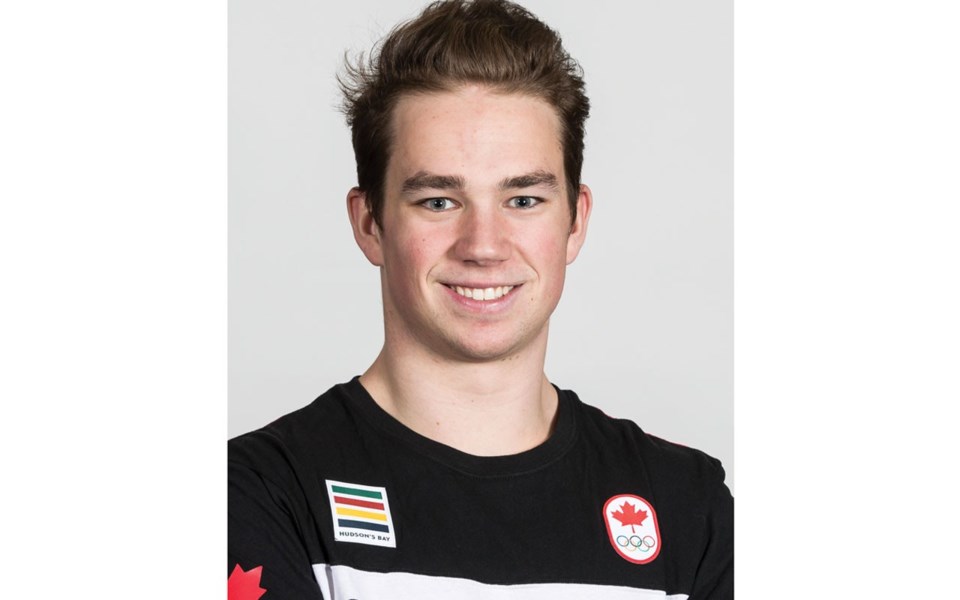Reid Watts and the rest of Team Canada's lugers won't be competing quite as much on the FIL World Cup circuit in the coming year, but the 20-year-old Whistlerite sees the reasoning for it.
With the 2022 Winter Olympics in Beijing creeping up more quickly than one might think, Watts said this year is more about preparing for the Olympic grind that awaits him in the 2020-21 and 2021-22 seasons than individual glory in this particular campaign.
As such, Watts and the young crew of lugers will opt to spend more training time at some of the more difficult tracks this season in an attempt to improve their skills, rather than dash for medals at some of the less-complicated offerings on tour.
"We're just really trying to nail things, settle things and get comfortable on [our task], which is, believe it or not, already qualifying for the Olympics and Luge World Championships at home [in Whistler]," he said.
Among the events the Canadians will omit from this year's calendar is the mid-January World Cup in Lillehammer, Norway, in favour of getting to Sigulda, Latvia a week early for the race the following weekend. The Canucks are also planning to forgo the final race of the season at Konigssee, Germany, in order to cap the season sliding here in Whistler.
Watts noted the squad would do plenty of training on tough tracks such as those in Konigssee, Lake Placid and Altenberg, with the latter German track the one he's most looking forward to nailing down.
"I'm looking more at the long-term [result]," he said. "This year, specifically, we need to practice some runs at tracks where we really need the experience. Going to a track with just the official training, five runs, it's kind of pointless because you don't really know all the sections of the track as well as you need to.
"[Altenberg] has been a rough track for me. It's known to be the most technical track in the world, and the hardest track, I believe."
Still, even though it's taking a little less emphasis this season, Watts is eager to kick off this year's FIL Viessmann World Cup at Igls, Austria on Nov. 23 and 24.
"I've really been looking forward to this year. It's been a long summer, so it's always good to be back on the sled. I'm trying out some new equipment, and I'm really liking it. I'm really optimistic for this season," Watts said, while declining to go into further detail about his new steed.
The third race of the season will be here in Whistler on Dec. 13 and 14, which Watts is viewing as a measuring stick of where he truly stands.
"I always love to race at home," he said. "It's always magical."
Watts said he was still getting used to the grind of international travel during his second full campaign on the World Cup last season. This year, he feels he's ready to make a significant leap.
"Last year, I learned to be consistent and deal with the pressure, and this year, I'm pushing myself to get top-12 results more consistently, and hopefully, more relay podiums as well," he said.
Though the Calgary track is no longer operational, the city still served as a home base for Watts during the summer, where he worked out twice a day, five days a week, in advance of the season.
"It was really strenuous, and a lot of sport-specific stuff this year, which was good to see," he said. "I'm heavier and stronger than ever, so I'm really looking forward to it."
Even though he won't be able to legally drink podium champagne in the United States until December, Watts has embraced his role as a leader on the up-and-coming men's squad, following his own mentors like Sam Edney, Mitchel Malyk, Kim McRae and Alex Gough.
"It's come around quick from being a young rookie to being the veteran of the team, but it's been good," he said. "This whole circuit can be a bit of a travelling circus sometimes, so helping [younger athletes] out with all that, how to get comfortable on more tracks, especially lines, that's the biggest thing.
"They can help me learn from my mistakes, too, sometimes."




